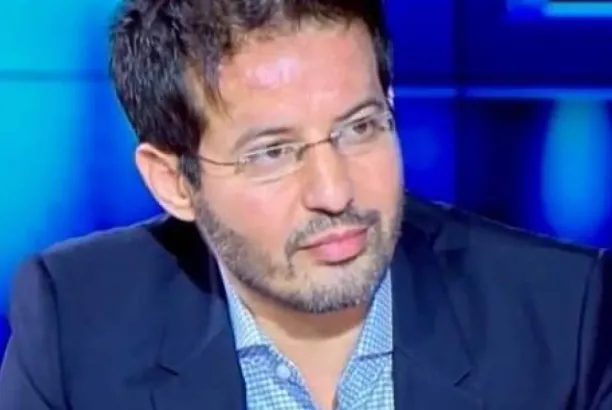
| Economic articles
Khaled Al-Zantouti: “The Central Bank and Sustainable Development — Caught Between Division, Regionalism, and the Prohibition of Interest!!”
The Financial Analyst Khaled Al-Zantouti wrote:
No one can deny the crucial role of central banks in promoting sustainable development within any economy. They drive the economic process through monetary stability and effective monetary policies. Unlike commercial banks, which seek positive returns through lending policies and profit-making between deposit costs and loan revenues, central banks aim to create financial stability that encourages investment through monetary policies that take into account all macroeconomic and microeconomic variables and their effects on credit and economic growth, as well as maintaining and growing the state’s reserves.
From here, I ask — innocently — has our Central Bank succeeded throughout the past decade in supporting sustainable development in Libya through effective monetary policies? The answer, perhaps, is no, no, no. But why not!?
The truth we must address with honesty and objectivity is that the Central Bank has, over the past years, been entangled in a closed loop of division, regionalism, and corruption. Even when some tried to reform (regardless of the previous administration, which I consider the missing link between those loops), it failed to be independent in its decision-making — dominated by individualism and the absence of an effective board of directors. This left it stumbling between terrifying cycles of division, corruption, and a struggle over the dollar. Unfortunately, to preserve positions, alliances were formed with one side after another, until interests clashed — and the consequences followed.
Another major issue that shackled and paralyzed all the Central Bank’s functions is the prohibition of interest and the absence of an alternative. The problem is that all monetary policies, without exception, rely on a key variable — the interest rate. When this tool is completely disabled, and no substitute exists, the Central Bank becomes unable to adopt any monetary policy. Through the interest rate (or its alternative, if any), inflation is controlled, purchasing power is managed, investment opportunities are opened, productive employment is stimulated, and economic development is enhanced, among other things.
Neither the Central Bank nor anyone else has managed to develop a viable alternative to the interest rate, except for some so-called “Islamic banks” offering limited products that have not contributed at all to increasing developmental investment — rather, they exploited ordinary citizens with costs surpassing all prevailing “interest” rates in comparable markets!
Here, I am not discussing the usurious nature of interest, as this is a subject of disagreement among scholars and Islamic academic institutions. However, I must note that usury (in its linguistic and terminological sense, usury) is prohibited in all cultures and religions — from Hammurabi’s Code to current U.S. law — and, most importantly, by our Islamic faith, which absolutely forbids usury. That is beyond dispute. The real discussion should center on whether interest and its economic and financial components fall under the definition of riba. This requires a religious and economic discussion governed by the principles of the Holy Qur’an and the essence of our timeless faith, led by our respected scholars and specialized academic institutions.
The loss of this policy tool and the absence of alternatives have forced our Central Bank to focus on money supply, monetary mass, and printing money to address short-term liquidity shortages imposed by the ongoing division and conflict. This has burdened citizens, disrupted livelihoods, led to the withdrawal and reissuance of currency amid accusations of forgery, and created a liquidity crisis affecting everyone.
I do not believe that, under such circumstances, even the U.S. Federal Reserve’s Board of Governors and Chairman Jerome Powell could operate effectively — so imagine our own situation. May God help them.
The Central Bank’s management history often shows tendencies toward temporary, patchwork solutions to deal with sudden variables imposed by certain interest groups — such as printing currency, spending reserves, and withdrawing or replacing some issues. Some of these short-term solutions have created severe problems directly and indirectly affecting citizens — like liquidity shortages and public debt.
Even when the new administration of the Central Bank attempted to address structural problems such as unifying the budget and controlling expenditure, unfortunately, it found no receptive ears among those with legislative and executive power — everyone played to their own tune.
Even the recent proposal to establish a holding company funded by the Central Bank’s reserves (as reported by media) — with due respect to its proponents — also carries risks. It could violate international standards governing the role of central banks, which prohibit them from forming holding or other companies, or acquiring significant shares. Moreover, it contradicts the global rules for investing state reserves — which emphasize low-risk, sovereign, high-quality, investment-grade assets. Most international standards prohibit central banks from owning commercial banks, based on the principle of maintaining full independence. Unfortunately, our Central Bank clearly violates this through its ownership of major and minor shares in Libya’s largest commercial banks — which completely negates its supervisory independence, since one cannot both own and regulate simultaneously.
In light of the above, I hope and wish that the Central Bank pays attention to the following recommendations:
- Ensure the absolute independence of the Central Bank in performing its functions, foremost among them developing monetary policy.
- The Central Bank must not be a party to this destructive division in any form.
- The Central Bank is not subordinate to any legislative or executive authority technically; it is only obliged to provide consultation and technical reports to the government and the House of Representatives and is accountable solely to the legislative body.
- The Central Bank’s Board of Directors must have full immunity during its legal term and may not be dismissed by any party except through a final court ruling.
- The Central Bank should deal with only one unified budget, approved and coordinated with the legislative authority.
- Emphasize the importance of coordination between the Central Bank and executive authorities regarding monetary policies and their alignment with fiscal and trade policies.
- The Central Bank must determine the fair exchange rate of the Libyan dinar, be capable of defending it at any time, and adjust it according to the country’s evolving economic indicators.
- It is necessary to regulate and monitor all foreign currency transactions — including letters of credit and personal transfers — ensuring all imported goods are delivered to Libya at their true prices, within an officially approved goods budget.
- Commercial banks must contribute to developmental lending under approved risk matrices, guarantees, and policies, coordinated with the executive authority to ensure proper conditions for credit — such as real estate registration and specialized, fast-track financial courts.
- The issue of interest or its alternative must be discussed seriously by scholars of Islamic finance and economists, as credit cannot exist without cost or return.
- All commercial banks, public and private, must clearly define their identity — whether traditional or otherwise.
- Establish a holding company owned by the public treasury to which all Central Bank shares in commercial banks are transferred, thereby separating ownership from supervision. Later, the company’s shares could be offered for public subscription and sold to citizens and the private sector at fair prices.
If these recommendations are not fulfilled, those concerned should resign honorably, rather than submit to the forces of division, regionalism, and corruption — or to any factor that compromises the independence of the Central Bank in any way.





